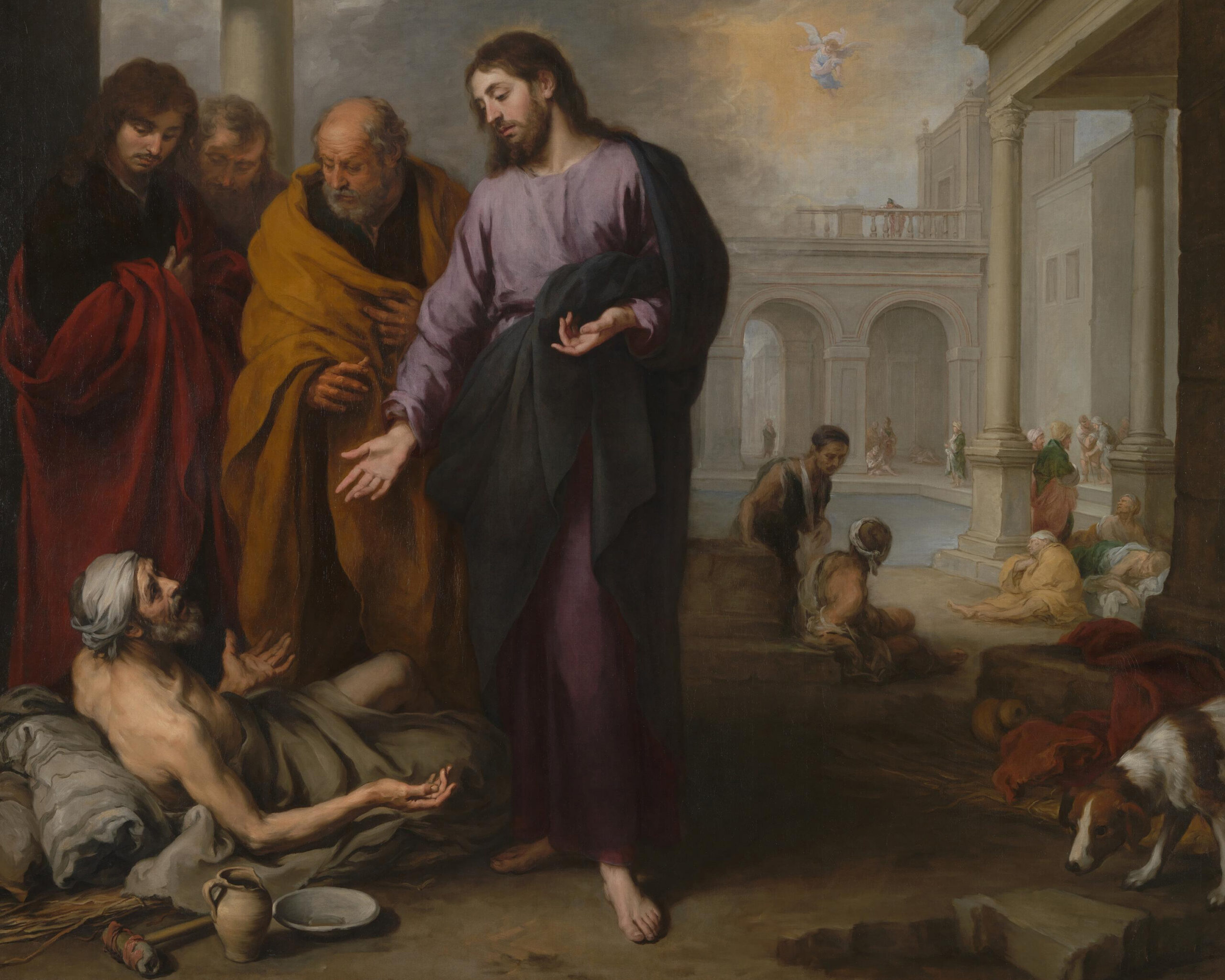As a Doctor of the Church and master of the interior life, Saint Teresa of Avila has much wisdom to offer us on the topic of prayer and meditation. Here, her teachings on “the royal way to heaven,” or mental prayer, have been compiled and summarized.
The Royal Highway to Heaven
IN A PIQUANT PHRASE, St. Teresa terms mental prayer the “royal highway to heaven.” The thought conveyed in her statement is that meditation presents an easy device for attaining union with God. Again and again in her writings, St. Teresa pauses to remind us of the fact that mental prayer quickly raises one to previously unrealized heights of holiness.
It might appear a bit naive to maintain that one single exercise of the spiritual life can effect so radical a result. But here again the genius of St. Teresa is demonstrated: meditation in her concept is not a single exercise of the spiritual life, it is rather a whole new way of living; it is an introduction into a new life of friendship with Christ. Her basic definition claims that meditation is “nothing else than an intimate friendship . . . with Him.” St. Teresa would draw the soul into this friendly contact with Christ and—almost surreptitiously—open to him new vistas and horizons of spiritual living.
When one has begun to meet Christ daily on this level of friendship, his entire relationship to God will undergo a revolutionary alteration. Christ will no longer be a historical figure who lived some two thousand years ago. He will, instead, be a living, personal, knowable friend. And once a person arrives at a practical realization that Christ is not just something but rather someone, his whole life will be reorganized. Religion for him will not consist in a series of “thou shalt” and “thou shalt not”; no, it will be an exciting, absorbing friendship with Christ. This is the road St. Teresa invites us to travel by engaging in mental prayer.
Meditation According to Saint Teresa
The beauty of Teresian meditation lies in the fact that the soul is stripped of the protection of formal prayers and thrust into immediate contact with Our Lord. We all know too well that we can ramble through long periods of vocal prayer without ever once meeting Christ directly. And words—words without interior conviction—avail little in our friendship with Christ. Shakespeare so aptly portrays that truth in his Hamlet:
My words fly up my thoughts remain below;
Words without thoughts never to heaven go.
But was not this the complaint of Our Lord Himself?:
This people honors me with their lips but their heart is far from me.
True mental prayer obviates this difficulty by turning the soul squarely into the presence of Christ and leaving him there to fend for himself. There are no standardized formulae of prayer to hide behind; he is forced to speak directly to his Divine Friend. St. Teresa, after treating of the basic nature of prayer, cries out to Christ:
I cannot conceive, my Creator, why the whole world does not strive to draw near Thee in this intimate friendship.
St. Teresa’s perplexity is understandable: mental prayer offers such vast possibilities in the spiritual life that it is astounding so few people meditate faithfully.
Much of the diffidence in undertaking meditation is occasioned by the initial difficulties experienced therein. Meditation is a new, unique manner of praying for many, and consequently there must be a strenuous period of adjustment. The labor and effort required frighten many. St. Teresa comments on these early struggles:
Since I am speaking of the first efforts of those souls who are resolved to pursue the conquest of such a great good and come out victorious from their enterprise, I wish to remark to them that the rudest trials are at the beginning.
Difficulties In Meditation
The most difficult trials are at the beginning—how true! But once the soul has mastered a few of the fundamental concepts of meditation, all will be easier. If only the soul can rise over and above these inaugural problems. Accordingly, St. Teresa bolsters up her beginner at prayer with an appeal to courage:
It is a great mercy on the part of God to give to a person the grace and an energetic resolution to tend with all his strength to perfection by means of mental prayer. Let him but persevere and God who refuses nobody will gradually augment his courage so that he will in the end gain the victory.
Courage, for a little while, and soon one will develop that ease and facility at mental prayer which will make it all seem worthwhile.
Some three hundred and fifty years ago St. Francis de Sales sadly grieved that meditation is a neglected art:
But perhaps . . . you know not how to pray mentally, for it is a thing with which few in our age are so happy as to be acquainted.
It is a complaint that could be registered in our own times, too. So many omit meditation from their lives on one pretext or another—no one of them valid. By so doing they thereby exclude themselves from the happiness and beneficial results derived from meditation.
St. Teresa, therefore, extends to all a fervent plea and invitation to incorporate the practice of mental prayer in their lives. And if we follow her suggestion, our whole life—not just our prayer life—will assume a rich, vibrant tone; we will be absorbed in a close, personal friendship with Christ; we will begin to experience here on earth some of Heaven’s joys.
Yes, St. Teresa was right: meditation is the “royal highway to heaven.”
ooo
This article is taken from a chapter in Conversation with Christ: The Teachings of St. Teresa of Avila about Personal Prayer by Peter Rohrbach which is available from TAN Books.





